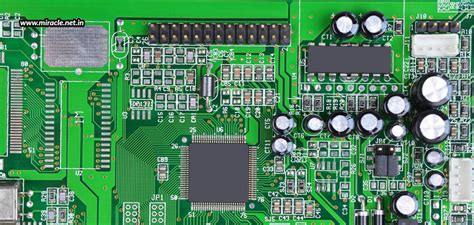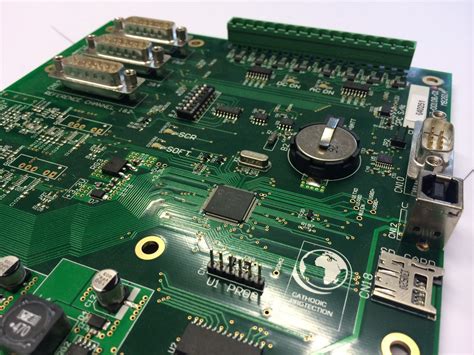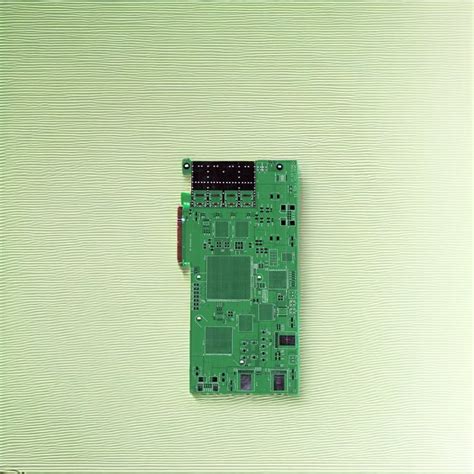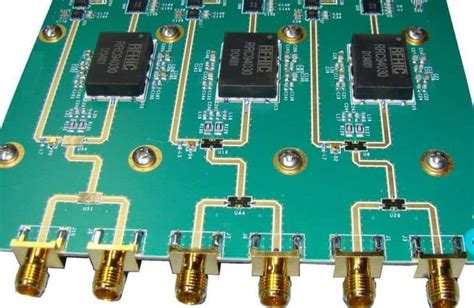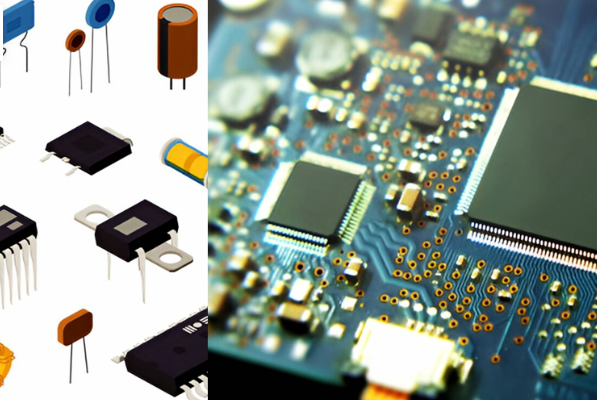How to Effectively prevent Excessive PCB corrosion
Excessive corrosion of pcb is a serious problem that can lead to short circuits,reduced current capacity,increased resistance,and even affect the overall performance and lifespan of the device.To prevent this,multiple aspects must be addressed,including design,material selection,manufacturing process,storage environment,and maintenance.The following will discuss in detail strategies for effectively preventing excessive pcb corrosion
1.Preventive Measure During the design Phase
proper pcb layout
During the design phase,ensure a reasonable pcb layout to avoid placing sensitive components in corrosion-prone areas,For example,place corrosion-pron component away from the edges to reduce their impact on the external environment.
Ensure that the trace width and spacing on the pcb meet design specification to minimize current desity and reduce the risk of corrosion.
Selecting Corrosion-Resistant Materials
When selecting PCB material,consider their corrosion resistance.For example,copper alloys with excellent corrosion resistance are recommended as conductor materials.
The selection of solder mask is also crucial;choose a solder mask ink with good corrosion resistance
Applying a conformal coating
Applying a conformal coating to the PCB surface effectively protects against moisture,corrosion,and other factors that can degrade quality.Conformal coating can be applied to both exposed and non-exposed areas,providing long term protection.

2. Controls During the Manufacturing Process
Strictly Control the Soldering Process
Flux residue used during soldering is a major cause of corrosion.Therefore,flux residue should be thoroughly removed after soldering,especially when using older flux materials.The organic acids in newer fluxes decomposition temperature may not be reached during wave soldering.Therefore, boards should be thoroughly cleaned manually after wave soldering to prevent crevice corrosion.
Optimizing the Electroplating process
Electroplating can provide additional protection against pcb corrosion.However,the plating solution composition,temperature,and palting solution composition,temperature,and plating time must be strictly controlled during the electroplating process to ensure the quality and thickness of the plating layer.Proper cleaning and drying should be performed after plating to remove plating solution residue and prevent corrosion.
Strengthening Quality Inspection
Strengthening quality inspection during the manufacturing process,including visual inspection, electrical perfomance testing,and corrosion testing.this allows for early detection of potential corrosion issues and appropriate corrective measures.
3.Storage Environment Control
Maintain a Dry Environment
Humidity id one of the main factors contributing to pcb corrosion.Therefore,PCBs should be stored in a dry environment and avoid prolonged exposure to moisture.
A dehumidifier or desiccant can be used to reduce the humidity in the storage environment.
Preventing Contamination
PCBs should be protected from contaminants such as dust and chemicals during storage.These contaminants may react with metal component and cause corrosion.
Use antistatic storage bags or sealed containers to store PCBs to prevent electron buidup and contamination.
4.Maintenance and care
Regular inspection and Cleaning
Inspect and clean PCBs regularly to remove dust,dirt,and other contaminants.This keeps the PCBs clean and dry ,reducing the risk of corrosion.
During cleaning,use appropriate cleaning agents and tools to avoid damage to the PCB.
Replace Damaged components Promptly
If damaged or severely corroded components are discovered during inspection,they should be replaced promptly prevent further corrosion and damage.
When replacing components,follow the manufacture’s guidelines and recommendation to ensure that the replacement process does not cause additional damage to the PCB.Applying a Protective
Coating
Applying a protective coating to PCBs provides additional protection against corrosion and damage.protective coating can include solder mask,aerosol spray coating,or epoxy coating.
5.Other Preventive Measures
Avoiding the use of corrosive Chemicals During the manufacturing,storage,and maintenance of PCBs,avoid the use of corrosive solution such ad strong acids and bases for cleaning or handling.
Enhancing personnel Training
provide professional training to personnel involved in PCB manufacturing,storage,and maintenance to enhance their skills and awareness.This ensures they understand how to properly handle and store pcbs to reduce the risk of corrosion.
Establishing a Quality Management System
Establishing a comprehensive quality management system ensures that quality standards are met at every stage from design to manufacturing.This ensure the quality and reliability of pcbs and reduces the risk of corrosion.
6.Case Analysis
The following is a case study on excessive PCB corrosion:
Case Background:
An electronics manufacturer discovered that some PCBs had corroded after a period of use during production,resulting in decreased device performance.Analysis revealed that the corrosion was primarily caused by incomplete cleaning of flux residue during soldering.
Solution:
Optimized the soldering process to ensure flux residue is thoroughly cleaned after soldering.Strengthened quality inspection,including rigorous visual inspections and corrosion testing of post-solder pcbs.
Affected PCBs were replaced,and the remaining PCBs on the production line were inspected and treated.
Result:
Through the implementation of these measures,the manufacturer successfully resolved the issue of excessive PCB corrosion and improved product quality and reliability.
In summary,preventing excessive PCB corrosion requires multiple approaches,including design,manufacturing storage,maintenance,and care.Measures such as rational layout design,selection of corrosion-resistant materials,strict manufacturing process control,maintaining a dry environment,regular inspection and cleaning,and timely replacement of damaged components can effectively reduce the risk of PCB corrosion.Furthermore,strengthening personnel tranining and establishing a quality management system are also improtant means of ensuring PCB quality and reliability.



